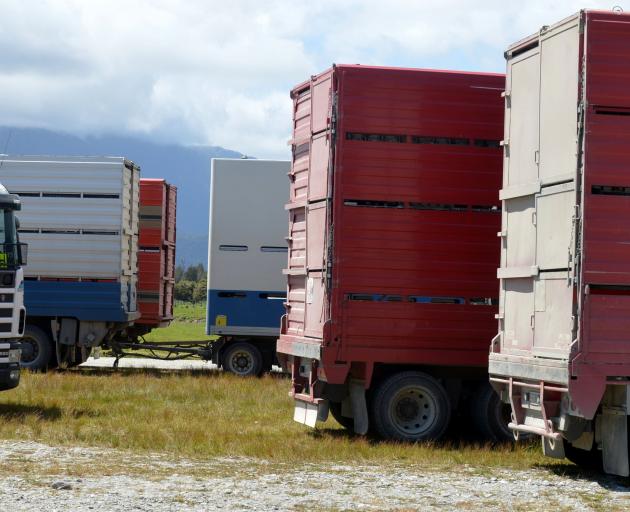
The government announced immediate changes to the accredited employer worker visa scheme on April 7.
Immigration Minister Erica Stanford said the aim of the changes included ensuring New Zealanders were working in jobs where there were no skill shortages.
The changes include closing the work-to-residence pathway for migrant truck drivers because the shortages of drivers when it was established had been filled, she said.
Ranfurly Transport owner Richard Duffy said he was constantly seeking experienced truck drivers to cart livestock.
"You are always looking — that’s for sure."
Finding staff was a constant challenge, especially as the work demands long hours and time away from families.
Migrant truck drivers who had contacted him seeking work were mostly from Fiji, he said.
He had never employed a migrant, as he wanted staff who had experience carting livestock.
"Otherwise it is just a whole lot of hassles with meat companies and farmers and you name it."
Ia Ara Aotearoa Transporting New Zealand interim chief executive Dom Kalasih, of Wellington, said the loss of access to immigrant drivers meant New Zealand was in a worse place to manage any volatility in demand.
"The main impacts are the uncertainty it creates with employees and employers and how quickly our industry can respond to changing demand."
Demand for transport was impacted by many factors and could change quickly, such a livestock needing to be moved to meet export demand or to reduce the impact of an adverse weather event.
"It is so bloody hard to predict what we are going to need in six months and livestock is more specialised than any other sector."
He believed the industry needed to take more responsibility in developing its own stock of drivers.
A positive from the changes of having fewer migrants in the industry could be a wage increase for the remaining truck drivers.
Transporting New Zealand, a national industry association representing 1200 road freight transport companies, reported a national shortage of 3449 truck drivers in 2022, he said.
Visa data showed nearly 4300 truck drivers applied for the scheme between July 2022 and April 4 this year.
He believed the number of migrants working as truck drivers would be higher, as the figure did not count people on open work visas or essential skills visas.
The data appeared to show the critical shortages of truck drivers when the pathway was established had been resolved.
He believed demand for truck drivers in New Zealand was "soft" now, he said.
People who already held a visa under the scheme or those who had applications being processed and were subsequently approved, would retain their residence pathway, he said.
Migrant truck drivers, many who were from the Philippines and India, lacked any experience carting livestock and chose to cart general freight in New Zealand.
Consequently, the pay rates for transporting general freight could drop due to there being more migrant truck drivers in that sector of the industry.
Therefore, better pay might be available to cart livestock and attract New Zealand truck drivers to the sector, he said,
"Market forces will drive most things."





















